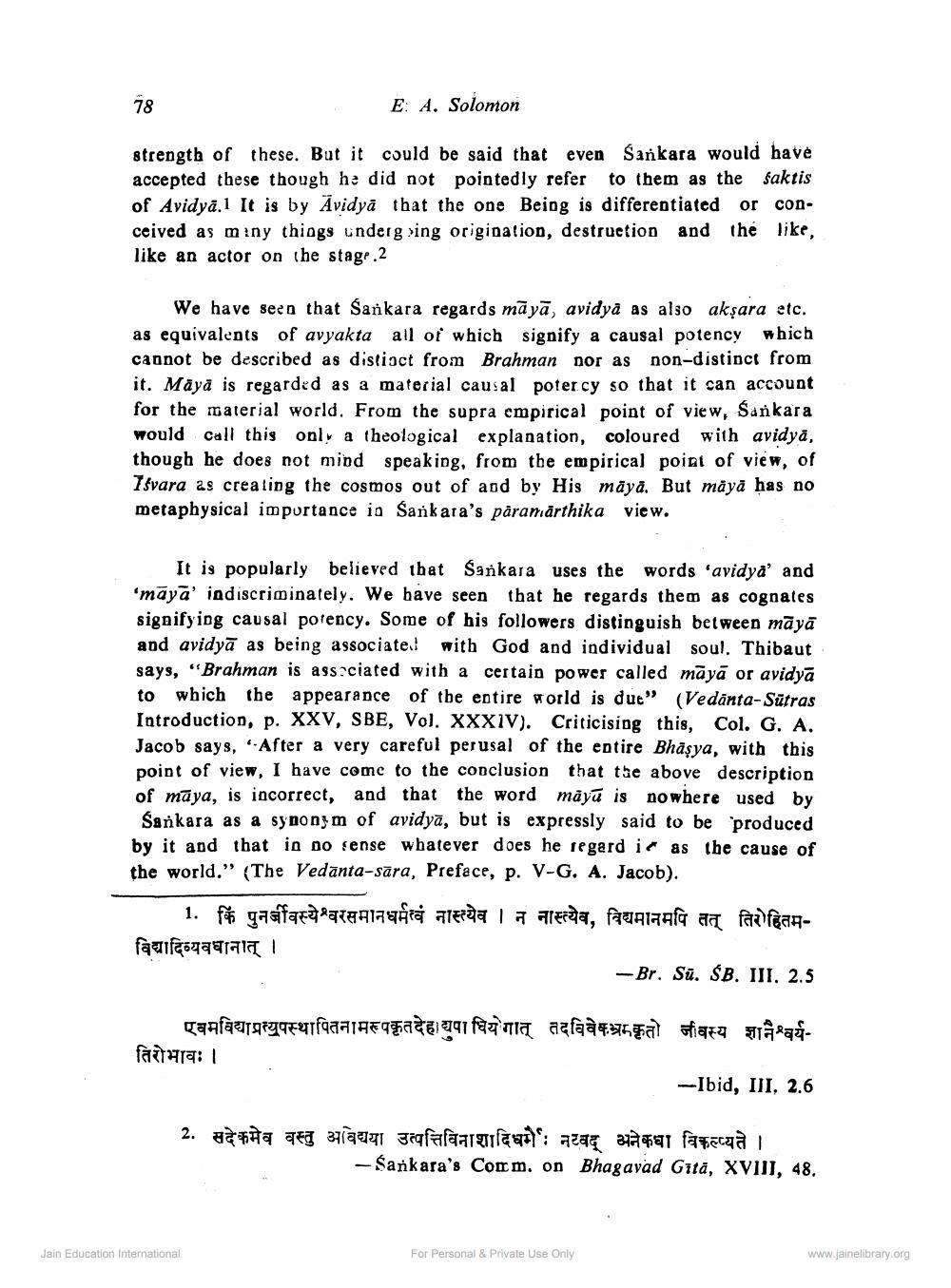________________
78
E. A. Solomon
strength of these. But it could be said that even Sankara would have accepted these though he did not pointedly refer to them as the of Avidya. It is by Avidya that the one Being is differentiated or conceived as many things undergoing origination, destruetion and the like, like an actor on the stage.2
We have seen that Sankara regards maya, avidya as also aksara etc. as equivalents of avyakta all of which signify a causal potency which cannot be described as distinct from Brahman nor as non-distinct from it. Maya is regarded as a material causal potercy so that it can account for the material world. From the supra empirical point of view, Sankara would call this only a theological explanation, coloured with avidya, though he does not mind speaking, from the empirical point of view, of Isvara as creating the cosmos out of and by His māyā. But māyā has no metaphysical importance in Sankara's paramarthika view.
It is popularly believed that Sankara uses the words 'avidya' and 'maya' indiscriminately. We have seen that he regards them as cognates signifying causal potency. Some of his followers distinguish between maya and avidya as being associate! with God and individual soul. Thibaut says, "Brahman is associated with a certain power called māyā or avidya to which the the appearance of the entire world is due" (Vedanta-Sutras Introduction, p. XXV, SBE, Vol. XXXIV). Criticising this, Col. G. A. Jacob says, After a very careful perusal of the entire Bhasya, with this point of view, I have come to the conclusion that the above description of maya, is incorrect, and that the word maya is nowhere used by Sankara as a synonym of avidya, but is expressly said to be produced by it and that in no sense whatever does he regard i as the cause of the world." (The Vedanta-sara, Preface, p. V-G. A. Jacob).
1. किं पुनर्जीवस्येश्वरसमानधर्मत्वं नास्त्येव । न नास्त्येव, विद्यमानमपि सत् तिरोहितमविद्यादिव्यवधानात् ।
-Br. Sü. SB. III. 2.5
एवमविद्या प्रत्युपस्थापितनामरूपकृतदेह युवा घियेगात् सदविवेकभ्रम तो जीवस्य ज्ञानैश्वर्यतिरोभावः ।
-Ibid, III, 2.6
2. सदेकमेव वस्तु अविद्यया उत्पत्तिविनाशादिधर्मे नवद् अनेकथा विकल्प्यते । -Sankara's Comm. on Bhagavad Gita, XVIII, 48.
Jain Education International
For Personal & Private Use Only
www.jainelibrary.org




